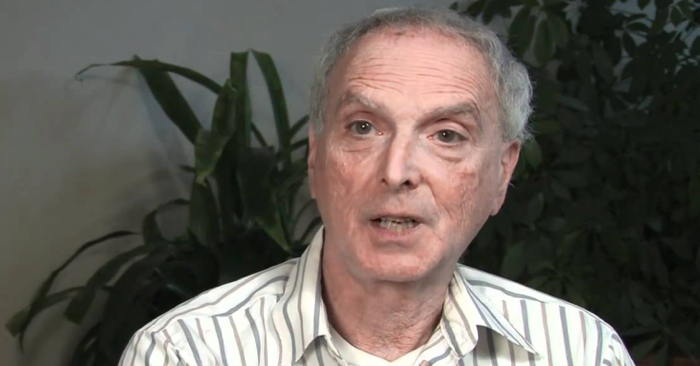Ted Zeff, PhD taught workshops on coping techniques for highly sensitive people, and stress reduction and insomnia management at various hospitals and medical groups.
Here is our audio interview:
…
~~~
In her post Aging, Death, and our Dear Ted, September 30, 2019, Elaine Aron writes:
“Some of you have requested that I write about aging and death in relation to our trait. This seems to be the right time: As some of you know, Ted Zeff, our hero in his tireless work for sensitive men and boys as well as all HSPs, left his body on August 18, after a long struggle with cancer.
“Even during that period, and throughout his life, Ted had dedicated himself to other highly sensitive people, writing The Highly Sensitive Person’s Survival Guide, The Strong, Sensitive Boy, and The Power of Sensitivity, along with doing so many helpful videos, blog posts, and media interviews. HSPs will miss him; even if you did not know him, his voice has helped us all.”
~~~~
Video: Highly Sensitive Boys and Men – An Interview with Dr. Ted Zeff by Shari Dyer
~~~~~
Brief audio clip on work of Ted Zeff:
~~~~
Dr. Ted Zeff summarizes his research on highly sensitive males, based on interviews with thirty highly sensitive men from five countries:
“The North American (U.S. and Canada) HSMs (highly sensitive males) who reported that they had supportive parents as boys and who played group sports as a boy were “never” or “rarely” teased for being sensitive.
“However, the North American HSMs who reported that neither parents were supportive of their sensitivity, and who never played team sports as a boy were “usually,” or “always” teased by other children.”
Dr. Zeff found that sensitive boys who participated in team sports had higher self-esteem, and, regardless of physique, were “never” or “rarely” teased.
Most HSMs “always” or “usually” avoided fighting as a boy, and “did not like watching violence on television or in movies.”
From article: Ted Zeff on highly sensitive boys and men.
Also see post: Video: nurturing our sensitive self: Ted Zeff, PhD on strategies
~ ~ ~
Books by Ted Zeff, PhD include:
~ ~
Review by Elaine Aron, Ph.D.: “This book provides what every HSP needs: a full understanding of our trait through a diversity of stories that will empower sensitive people.”
Another review: “The Power of Sensitivity contains many fascinating and inspiring success stories from the global HSP community that will help sensitive people lead a peaceful, confident and joyous life.” – Judith Orloff, M.D., author of The Ecstasy of Surrender.
My review [on Amazon.com] – In addition to the wide range of helpful information about the trait, Dr. Zeff provides many examples and stories by highly sensitive people who successfully use their empathy and other traits to lead more fulfilled lives and careers.
A retired medical doctor talks about how she used her inborn intuition to treat patients more effectively. A computer instructor, who is both sensitive and a high sensation seeker, says they were “able to tune in to the psychological makeup of each student immediately” to know “how to present the material.” This is a book to encourage us to explore and celebrate being highly sensitive, as well as help others better understand the many positive qualities of high sensitivity.
Highly sensitive people make up 20 percent of the population in every country, and the trait is equally divided between males and females. The book contains 43 success stories that have been submitted from sensitive people from 10 different countries. Here is part of one:
Swedish woman, born in 1949, who has retired as a medical doctor:
“I’ve started to study photography in recent years, and I’ve noticed that photography reminds me of how I process things as an HSP and as a physician. I zoom in to details and then zoom out to get the big picture.
“However, this constant zooming in and out can be draining, so I need my downtime. In recent stress research it was shown that it’s especially stressful for women who take on too much responsibility without any personal time for themselves. I am very responsible by nature and very careful in my work as a doctor, so I reduce the stress by making sure I spend some time alone when I’m not working.
“Learning that I am an HSP has helped me both professionally and personally. I can now look back at that shy, lonely 10 year-old girl I used to be with both respect and love. I wouldn’t have been able to accept my sensitivity and understand the gift it has been in my work as a doctor if it weren’t for Elaine Aron’s work.”
Ted Zeff: “Dr. Ia Staaf has been able to use her inborn intuition to successfully treat patients. If there were more HSP medical doctors who also looked inwardly for guidance about what the body is trying to tell the patient, rather than just treating symptoms, I think there would be a quantum leap in healing.”
~~~
Also see my Highly Sensitive site to learn more about this trait shared by so many creative people.
~~~~~
Visited 1 times, 1 visit(s) today
* Note – Links to programs and products may be affiliate links, which means a company or publisher provides a small commission to me paid by them, if you decide to purchase. There is no extra cost to you. Commissions help support my efforts in creating the free content you read on my various sites, plus help pay for costs such as website hosting and software. As an affiliate for companies such as Sounds True, as well as a few coaches and psychologists, I provide links to programs that may be helpful for creative people. Thanks for reading articles – and for following these links.
#benefits #sensitive #wellbeing #beinghuman #mentalwellbeing #healthbenefits #beings #sensitivesoul #beinggood



